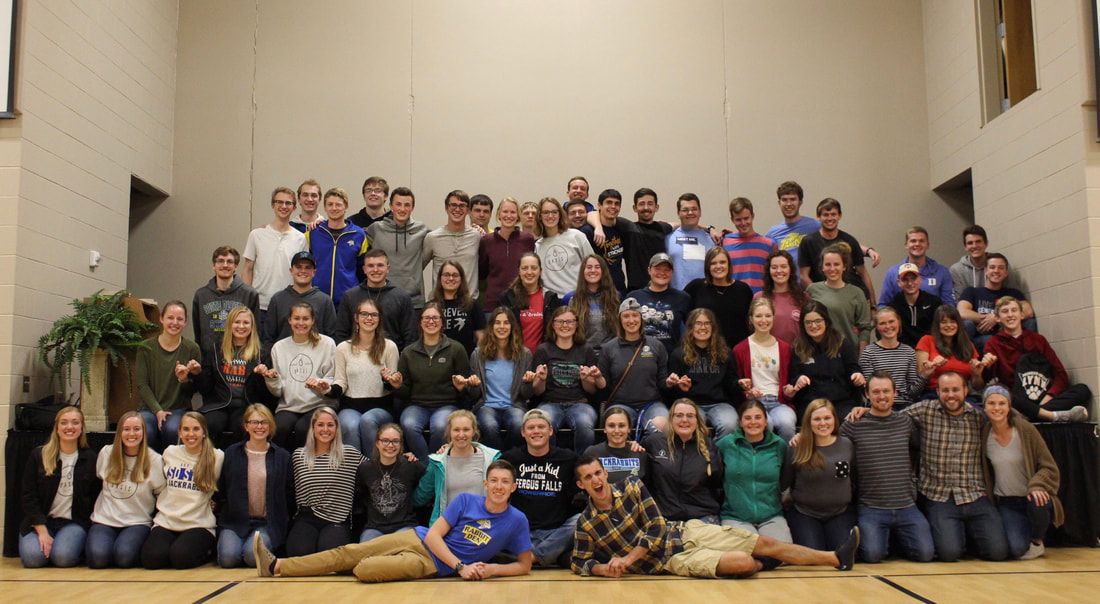I will be in a new house come Sunday, so my workload for the past few weeks has been full. I am quite tired, and perhaps a little grumpy. Still, the process of moving has retrieved several memories of my years at my college’s Christian youth ministries. I figured I’d reflect on those times and my views on college ministry as a whole.
The common piece of advice I hear from youth group leaders is to find a group you particularly like and to stick with it. This might be perhaps due to my own personal habits, but I often preferred to schedule multiple youth groups. I liked the music of one, and the camaraderie of the other. Besides, multiple perspectives of the Bible will prevent my mind from funneling down a single, potentially erroneous, school of thought. That’s one of the reasons why, as my course schedule forced one of the youth groups out, I regularly attended a church off campus. This church wasn’t interested in attracting students from the university; rather, it relied much more on the young couples and young families who dotted the area.
That’s one of the things that I thought was needed in university youth groups. The beginning of each year was a push to collect freshmen, and certain youth groups invested heavily in their first weeks. Over the course of the year, because the youth group catered to all students of all grades, and all levels of Christian experience, the sermons and music, reflecting that vague demographic, didn’t especially resonate with me. I hoped for deeper understanding of the Bible. I could get it on my own, but I wanted enlightenment as a group. As it stood (and likely still stands), the youth group is good for bringing people to a certain level of biblical understanding and keeping them there.
There were obvious options within the youth group, but I didn’t find any that fit my needs. This is not for the youth group’s lack of effort; not a month went by without some public and/or personal prod towards further integration with the youth group. There were grade-specific Bible studies, but I was invited to inter-grade ones, often congregating in dorm rooms to discuss a letter from Paul, or at least a New Testament book or theme. Almost every Bible study I had growing up centered around a letter from Paul, and I was hoping to expand my knowledge and grow in my faith. Even through nearly perfect attendance, I often walked away empty. Leadership roles were readily available, but I had too much on my plate to work on management. Besides, enlightenment doesn’t often derive from administrative authority, if it ever does. I volunteered to evangelize to college students in public areas. When I tried to adapt to the students’ personalities, and to convey the message of Christ in a way that they might understand, I was told to stick to the script. As much as that might be a useful tactic, I don’t recall bringing a single other student to the weekly meetings. Among the gentlemen of the ministry, I would say that the vast majority had grown up in the church.
Perhaps this is mostly ramblings. Why, if the youth group seems to be so successful at bringing in large initial numbers of students and maintaining them throughout the year, would I be so concerned about reformation? Perhaps there is no need for reform, but I would like to know how graduates fare once they’ve separated from the youth ministry. Do they still go to church? Do they find Bible studies; do they study on their own? I revisited my church last year. Few, if any, of the small population the church had built moved away. Since I arrived as a freshman, they’ve moved into a bigger facility, and are slowly and steadily growing a population that will stay for decades. These are carefully-watered seeds, placed in a rich soil and grown to be strong. Most students will only stay for at most four years; what happens then? The spiritual waters in the decades to follow are just as choppy, especially because they’re now severed from the community that housed them. I am fortunate enough to have new soil that is just as good as the old.
In short, pray for the graduates. They will need the strength of God to travel through the rest of life intact, as do we all.


Leave a Reply